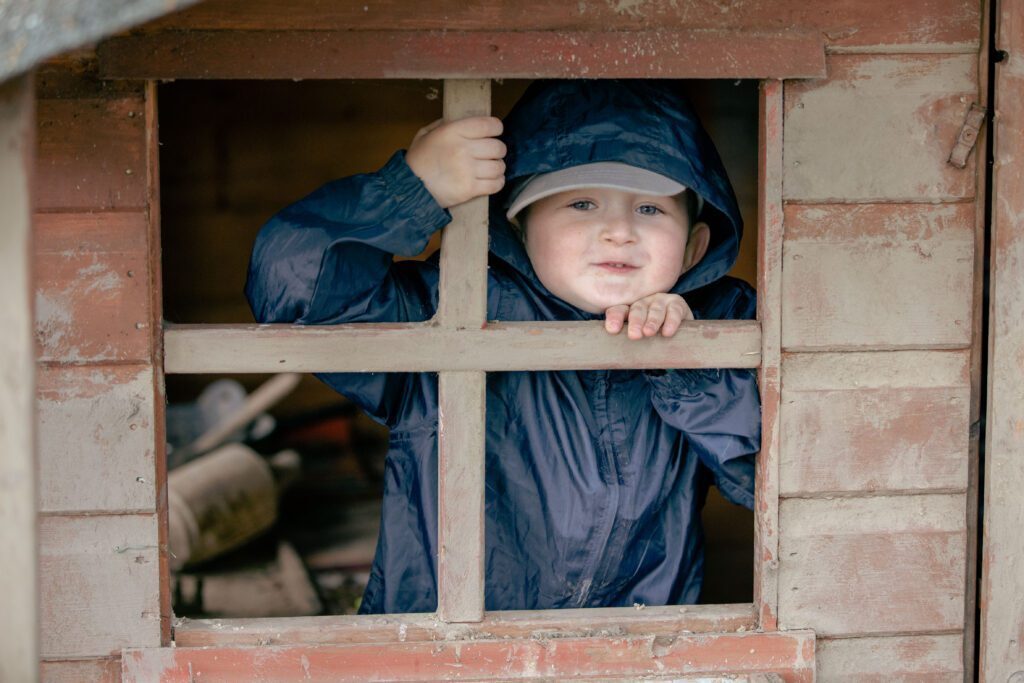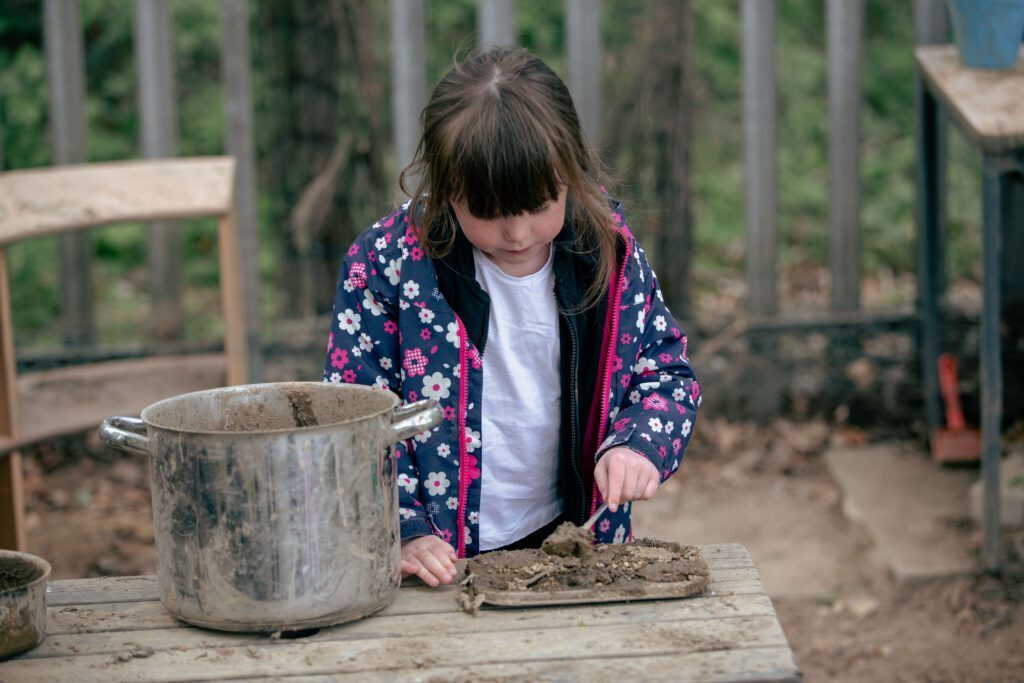Forest School
What is Forest School?
The Forest School movement originated in Denmark. It has been an integral part of Early years education since the 1980’s when it was introduced as part of an expansion of nursery provision. It is based on the idea that young children can develop enthusiasm for education through the appreciation of nature. In Denmark, Forest schools have found to boost pupils’ confidence and improved their behaviour and social skills. Forest school is holistic learning through play and exploration, children learn about the environment, how to handle risks and use their initiative to solve problems and to co-operate with others.
Forest School at Neville’s Cross
At Neville’s Cross Forest School we aim to instil a love of the great outdoors. Our Forest School sessions take place in a woodland area within our school grounds. The area provides a perfect introduction for the children to explore and connect with nature. A range of activities are planned to develop a love of nature and the outdoors; promote social, physical, intellectual, creative, emotional and spiritual skills. Children are encouraged to take risks, such as using tools and climbing trees in a safe supported environment. Simple tools are introduced to the children when appropriate and fire is introduced in the second experience block for Reception children. Through these activities the children develop their self-confidence and the skills to use the tools appropriately. The children are the centre of our Forest School programme, the activities and resources offered reflect their needs and interests. Sessions are planned with a mix of adult suggested activities and free choice; the plan is flexible and is led by the interests of the children. Play is an integral part of the programme with games and free choice enabling the children to engage and connect with the outdoors.
Children in Nursery and Reception take part in Forest School sessions and an extra-curricular Forest School Club is offered to children in Key Stage 1 during the Summer Term.
Our Forest School rules
- Look after our Forest School
- Do not pick anything growing
- Do not put our fingers or anything else in your mouth
- Stay within the boundaries marked, ’we don’t go over it and we don’t go under it’.
- Stay outside of the fire circle, unless invited in by an adult.
- Look above, below and around for hazards.
- Always walk.
Who will organise and run Forest School Sessions at Neville’s Cross:
Sessions in Nursery, Reception and KS1 after school club are planned and run by Miss Bell, who holds the Forest School Leader Level 3 qualification and a 3 year Outdoor First Aid Certificate.
There are always at least two adults present at Forest School sessions.
Forest Bathing
Forest Bathing is a wellbeing programme that improves mental and physical health through time spent in natural areas such as forest. Participants benefit from the fresh air, exercise and therapeutic effects of spending time out in nature. It involves gentle exercise in a small natural area such as woodland, appreciating the nature all around us.
Children typically walk mindfully or move short distances across our woodland area whilst doing a number of activities (invitations) to help them become fully immersed in the forest environment. The activities are through sensory first-hand experiences and bathing in the atmosphere. For example, using view finders, sensory bowls and eyes closed exercises. Breathing exercises are used to encourage calmness and children use their senses more. Sessions can include sitting or lying on a mat to enjoy quiet relaxation.
The focus of Forest Bathing is relaxation, wellbeing and improved mental health. It encourages the children to make a personal connection with nature, and therefore encourage a want to protect it. Forest Bathing sessions are beneficial for any age group but younger children’s sessions would be more active. Contrary to the name, there is no swimming involved.











































